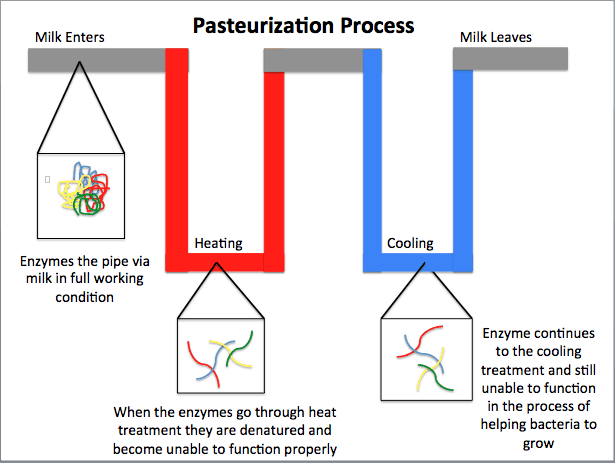
Louis Pasteur was a French microbiologist and chemist who is best known for his work on the germ theory and for developing the process of pasteurization. Pasteurization is a process of heating food, usually liquid, to a specific temperature for a certain amount of time to kill harmful bacteria and pathogens.
The Need for Pasteurization

In the 1800s, there was a growing concern over the safety of milk and other dairy products. Milk was often contaminated with harmful bacteria, such as tuberculosis, typhoid fever, and diphtheria. This led to widespread illness and death, especially among children.
At the time, there was no effective way to kill these harmful bacteria without also killing the beneficial bacteria that were necessary for fermentation and other processes. This is where Pasteur came in.
The Process of Pasteurization

Pasteur's process of pasteurization involves heating a liquid, such as milk, to a temperature of 72°C (162°F) for 15 seconds, then rapidly cooling it to below 10°C (50°F). This process kills harmful bacteria and pathogens while preserving the taste and nutritional value of the food.
Today, pasteurization is used to make a variety of foods safe for consumption, including milk, cheese, yogurt, and fruit juices. This process has saved countless lives and has become an essential part of the food industry.
The Impact of Pasteurization
Pasteur's work on the germ theory and pasteurization revolutionized the way we think about disease and food safety. His discovery paved the way for the development of other important advancements in microbiology and medicine.
Today, Pasteur's legacy lives on in the form of the Pasteur Institute, a world-renowned center for research and education in the field of microbiology and infectious diseases.
The Future of Pasteurization

While pasteurization has been a game-changer in the food industry, there are still challenges to overcome. Some pathogens, such as Listeria and E. coli, are more resistant to heat than others and require additional measures to ensure food safety.
Research is ongoing to find new and better ways to protect our food supply from harmful bacteria and pathogens. As we continue to learn more about microbiology and food safety, we can look forward to even more advancements in the field of pasteurization and beyond.
Conclusion
Louis Pasteur's work on the germ theory and pasteurization has had an immeasurable impact on the food industry and public health. His discovery has saved countless lives and has paved the way for other important advancements in microbiology and medicine.
As we continue to face new challenges in food safety, the legacy of Pasteur's work continues to inspire and guide us in our efforts to protect the health and well-being of people around the world.